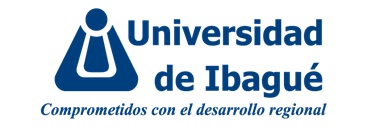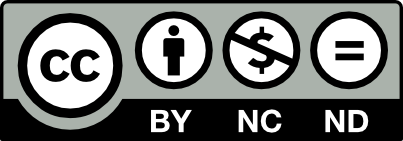There is no need to argue for the necessity of the existence of copyright laws. In words of Hurt and Schuchman they are necessary as they represent for the author “1. the Lockean natural property right of a person to the fruits of its creation, 2. the moral right to have his creation protected as an extension of his personality, and 3. his right to a reward to his contribution to society[1]” although not recent it is fair to say that this statement successfully summarises the economic content of copyright even under today’s new standards and practices. Unfortunately, the complexity of the current technological society has created new scenarios that were impossible to anticipate before. Technological advances at everyone’s disposition, such as the massive spread of the use of internet, new software’s, and faster computers in a more interconnected world, are playing a massive roll in the way we live our lives nowadays in terms of communication.
We are approaching this issue from the perspective if whether or not an extreme regulation of file sharing along with an attempt to very closely enforce the law is the solution to control the copyright infringement involved in such practice. To illustrate this point it is necessary to reference the most famous of file sharing cases, the Napster case[2]. In this case the United States Court of Appeal for the 9th Circuit, decided that Napster was “liable for contributory infringement and vicarious infringement of the plaintiffs’ copyrights” the decision caused the shutting down of Napster’s operations as a peer-to-peer file sharing company. At first it looked like a victory to the record companies for the prevailin g of the copyright laws and the protection of the interests those laws were created to protect. Sure, the decision was a success, at closing down one company, but the truth is that in reality it didn’t do much in terms of stopping file sharing itself. It has been well established that today 10 years after the landmark decision that the Napster case represented for copyright law, file sharing continues to exist stronger than ever. Infinity of companies and websites offer this “service” despite its illegality and the consequences if getting caught.
g of the copyright laws and the protection of the interests those laws were created to protect. Sure, the decision was a success, at closing down one company, but the truth is that in reality it didn’t do much in terms of stopping file sharing itself. It has been well established that today 10 years after the landmark decision that the Napster case represented for copyright law, file sharing continues to exist stronger than ever. Infinity of companies and websites offer this “service” despite its illegality and the consequences if getting caught.
Needless to say that most industrialized countries have decided to update their legislations to try and keep up with this issue, as a result we have for example the 2010 Digital Economy Act, in the United Kingdom[3]. This act provides a series of technical solutions to deal with file sharing as a practice. Solutions that include periodical screening and monitoring of the web carried out by the service providers in order to locate and follow the online activities of constant copyright infringers in an individual way. This is known as the Online Infringement Report. The Online Infringement Report Obliges the Internet service providers among some other things, to notify subscribers of reported infringements; and to provide an infringers list to copyright owners and/or representatives. The Digital Economy Act also includes the possibility to limitate and even to terminate the recurrent infringers’ Internet connections.
It is not surprising that this piece of legislation had been subject to very harsh criticism for its potential harmful effect on privacy. But especially because some argue that in reality the Digital Economy Act will do nothing in terms of stopping file sharing as a practice. It has been proven that there are all kinds of programs designed to bypass firewalls, not only that, but nowadays some peer to peer networks are using programs that leave no digital fingerprint of the downloaded files, so what are they going to include in their reports? Chances are that massive copyright infringers are the ones using this tools to avoid getting caught, and the reported infringers will be just the regular “every once in a while file sharer”. Don’t get us wrong, with this we are not saying that this “every once in a while file sharer” isn’t engaging in an illegal act, it is just that this proves that the problem of file sharing isn’t being tackle at its core by the Digital Economy Act.
In terms of effectiveness and assuming that in a perfect world the Digital Economy Act fulfils the purpose for what it was created and the Internet providers manage to compile this “lists” of infringers for the knowledge of the copyright holders, what are they (copyright holders) going to do once every single person whom have shared a copyright protected file has been individualized, pursued them in a court of law? This mere idea crumbles and falls apart, it results even ridiculous to consider. This shows that even with today’s technological tools, stopping the practice of file sharing results impossible to accomplish.
Never before since the appearance of mankind it has been easier to establish some kind of communication from afar with someone else. But the fact that we can also exchange all kinds of information with interconnected people all over the world is a reality that despite its endless beneficial possibilities also comes with a huge variety of negative aspects including the infringement of copyright via file sharing. In our opinion the only way to really attack file sharing at its core isn’t with stronger and more repressive legislation, because it has been proven that it isn’t working as a deterrent, most people and websites are willing to continue with this practice regardless the economic legal and moral consequences; perhaps if the owners of the copyrights manage somehow to reduce the costs of the contents, people will be willing to pay for them and not go online and get them for free. Other than that there is nothing that can be done to eradicate the practise of file sharing under today’s legal and technological tools.
[1] M. R. Hurt & R.M. Schuchman, “The Economic Rationale of Copyright” Econ (1966) pg 421.
[2] A7M Records , Inc. v Napster Inc, 239 F,3d 1004 (9th Cir. 2001)
[3] Digital Economy Act https://www.legislation.gov.uk/ukpga/2010/24/contents







